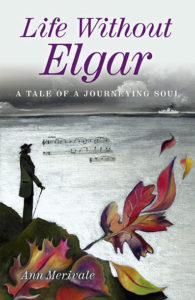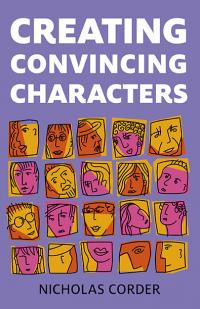
 Some people are ‘born writers’. No doubt you all know, or have heard of, people who
have written for pleasure all their lives and maybe scarcely remember a time when they didn’t hope to make it their career. Others come into it later, sometimes pushed, or even forced, into writing
through, say, their work, or a burning desire to share information that feels important to them. Those who come into the latter category (among whom I number myself) have no need to envy the born
writers. We are all different – what a boring world it would be if we weren’t – and we all have completely different paths, not only from each other but also each time that we come to Earth. For the
reason for returning so many times is to learn new lessons, and sometimes we choose for our growth to learn these the hard way.
Some people are ‘born writers’. No doubt you all know, or have heard of, people who
have written for pleasure all their lives and maybe scarcely remember a time when they didn’t hope to make it their career. Others come into it later, sometimes pushed, or even forced, into writing
through, say, their work, or a burning desire to share information that feels important to them. Those who come into the latter category (among whom I number myself) have no need to envy the born
writers. We are all different – what a boring world it would be if we weren’t – and we all have completely different paths, not only from each other but also each time that we come to Earth. For the
reason for returning so many times is to learn new lessons, and sometimes we choose for our growth to learn these the hard way.
So the first thing I should like to say to anyone who is seriously thinking of ‘putting pen to paper’ for the first time (probably figuratively in this computer era) is: don’t let feelings of inadequacy or inexperience put you off. For one thing, we have all done so many different things in each of our incarnations that it is unlikely that you will never have written before and, since all our talents remain latent within us, it could well be that your writing ability only needs a little stimulation to resurface. (Well, my own probably needed rather more than a little, but I had the additional disadvantage of having been brainwashed throughout my childhood into believing myself to be “useless at everything”. That was the challenge I took on this time round: without early difficulties to overcome I would certainly never have become a therapist.)
I have as yet no professional experience of writing fiction, but it is nevertheless clear to me that the process of producing a novel must be very different from that of writing books that are more factually based. Whether or not you can accept the comment “What is imagination but subconscious memory?” it is clear that some people are better endowed with it than others. And the most successful novelists are surely among those whose imagination shows the greatest originality. So, though a good novel will inevitably be fed by people, things and events with which the writer is surrounded, most of it will be conceived inside his or her head. After that, (unless you are a literary Mozart!) transferring what has originated in your head onto paper, in a way that makes reading it enjoyable, must take an enormous amount of work. So the second thing I’d like to say is: if you’re really determined to write a book – any sort of book – be prepared to put in a great deal of both time and labour.
Academics (I know because I married one) are expected during their careers to write, if not books, at the very least several, and preferably numerous, papers. For this a great deal of research is required. (Of course historical novelists must have to do a lot of that too.) The nature of the research will vary according to the subject: an archaeologist will do much of it by digging, a geologist in field work, a historian by extensive reading, a physicist by experimentation in a laboratory, a musicologist by listening to a great deal of music. My husband is a mathematician and so, though he does of course read books and papers around his subject, most of his research is done by thinking up new problems in his head and then endeavouring to solve them. What all these professionals have in common, however, is a need to consolidate all their findings and convey them on paper in a manner that is both coherent and logical. This requires skill, and skill is normally developed or improved by practice. (Regrettably not all academics either have this innate skill or see the need to work at it!)
I class myself as being in a category that is something in between that of the novelist and the academic, and I imagine that many other CI writers would consider themselves in the same way. All the books that I have written so far are based on facts – facts from either my own life or the lives of my therapy clients – but my ‘real people facts’ are always embroidered with my own reflections, with research that I have done through reading, and then polished with attempts at creativity. When I have clients with interesting stories, and whom I find to be happy for their stories to be put into a book (normally with names etc. changed), I then have the task of piecing together notes taken – often from several sessions, and sometimes weeks apart – into something coherent and readable. (Some therapists who are also writers make use of tape recorders, but I tend just to rely upon my own scrawl.) I have never found this task to be at all an easy one, but I would like to say that years of practice have increased my skill at (and also incidentally my enjoyment of) it. My recommendation is to read and re-read what you write over and over again, and, if you have someone at hand who is able and willing to oblige, do not hesitate to ask them as well to have a look at what you have done. Often a complete outsider (my mathematician husband is an excellent example) can be invaluable at pointing out something that you have not thought of, noticing ambiguities, or thinking of a better way of expressing a particular sentence or phrase. They do not need to be at all expert in your individual speciality to be of use in such a way!
Talking of “ambiguities”, sloppiness in the use of language is one of my ‘bugbears’ about present day English. I was recently given some new, more
powerful, hearing aids, and one of the instructions printed in the leaflet that came with them reads: “Use a wet wipe to gently clean the part of the hearing aid that goes in your ear every other
day.” Did they tell me at the hospital to wear my hearing aids every other day?!!! On the contrary – they stressed that I should use them every day. This is no doubt a rather extreme example, but
re-reading with care can help to eliminate ambiguities.
Another of my personal bugbears is incorrect grammar, and that is alas something that has been spreading like wildfire in recent years, even among educated people, both in writing and in speech. One habit that always makes me want to scream, and that is now unbelievably common, is saying or writing something such as “He gave it to David and I”. I call it the “Nominative bug”, but even those who (with Latin being now almost obsolete in schools) have never been taught about nominative and accusative will surely know the difference between subject and object. What annoys me so intensely about this error is its complete illogicality. For who would ever say “He gave it to I”? (My husband assures me that I’m not as fierce as I might sound!) My daughter, who did English Language to A Level prior to a degree in Linguistics and an M. Phil. in Publishing, reckons that people’s reason for making this mistake is an over-reaction to their school teachers having ordered them never to say “David and me are going…” If you feel uncertain of your grammar, I strongly recommend James Cochrane’s book BETWEEN YOU AND I – A Little Book of Bad English. (It has an Introduction by the BBC Radio 4 broadcaster John Humphrys, who shares my view on spoken and written English, if not on Elgar.)
Since we are all so different, we all find inspiration in different ways. Some will be intensely moved by poetry, while others are more affected by music, painting or beautiful views. Other countries come into my writing a great deal, and I have in recent years been in the fortunate position of being able to travel quite a lot. A niece of mine who did an M.A. in Creative Writing, and is currently an aspiring novelist, won a grant to do a trip on board a cargo ship, and I am now looking forward to reading her resulting novel. But it is by no means always necessary to go very far afield for one’s inspiration. My latest book is centred on the great English composer Sir Edward Elgar, who happens to have spent most of his life not far from where I now live, and so that made visiting his favourite haunts fairly easy. So, before taking up your pen (or sitting at your computer), it might be a good idea to spend a bit of time simply soaking yourself in the things that give you the most pleasure.
Finally, I’m sure all writers must find, as I do, that ideas can pop into their heads at any time – and sometimes in places or circumstances where it is difficult or impossible to write them down immediately (which makes cultivating one’s memory highly desirable) – and it is partly for that reason that I have unbounded admiration for full time writers who make sitting at their computers for a certain number of hours every day a matter of discipline. When I met the well-known John Matthews and asked him how it was possible to write over ninety books, he replied, “Actually it’s over a hundred now. It’s through necessity. I just sit at my computer all day every day, and if nothing comes I just go on sitting there.” Except for the “lucky few” (or rather for those with good karma in addition to exceptional talent) it has never been easy to make a living from writing, and I suspect that nowadays – with ever more competition and ever increasing numbers of ways of getting published – it is more difficult still. I also feel that those of us who have alternative sources of income would do well to appreciate our good fortune in not being forced to sit at our computers all day every day. Quite apart from the backache and eye ache that it can cause, it’s not at all good for the health. Here, however, I’m afraid that I should be preaching to myself: when I’m really in the flow with a book, I often find it difficult to take enough breaks. I therefor urge you not to “do as I do”, but instead to remember to stop every now and again – preferably half hourly (a cooker timer is a useful thing to keep on one’s desk) – and do some stretches or simple exercises, or just go off briefly to do the ironing or washing up, or walk the dog. Or even lie down for a little rest! This last needn’t stop you thinking, and as you do so you will very likely think of an even better way of putting that last sentence. The satisfaction of finally holding a book in your hands with your own name printed on the cover makes all the hard work infinitely worthwhile. And when anyone tells you how much they’ve enjoyed the book, or how much it has helped them, or how it has resonated with their own life experiences, that satisfaction is increased a thousand-fold!
Buy Paperback: AMAZON UK BARNES & NOBLE HIVE INDIEBOUND
Buy eBook: AMAZON UK BARNES & NOBLE HIVE
This article was first published in The Writer's Wheel Magazine Issue 4
Categories:
0 comments on this article







